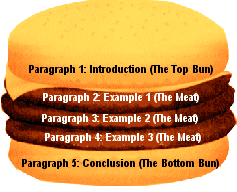A common controversy among the church has always been the question, “Who gets into Heaven?” As Christians, this question is fairly important to us, one of our main concerns. I will do my best to speak intelligently on the subject, and guide the reader through my ideas on the subject. I cannot expect to arrive at an answer or any sort of positive explanation, but I can hopefully provide some insight and a deeper understanding for the reader and myself. I have also asked a few friends their views and alternate answers. I will discuss those as well.
The most common response is to point out that in the Bible, Jesus says, “I am the way, the truth, and the life, no one comes to the Father except through me.” This is a very straightforward answer, which I completely agree with. Well, partly. I think that as believers, there is no substitute for the grace that Jesus gave us with his sacrifice on the cross. However, I do not think that this necessarily means that everyone who does not accept Jesus is destined for eternal damnation. After all, this Bible verse’s purpose could have been to steer people away from the idea that good works or other alternatives could help you earn your way to Heaven. God’s love is something we could never deserve or earn. That’s why we need Jesus. This is also why I believe someone can genuinely accept Jesus as their savior on their deathbed and be just as saved as someone who accepted Jesus and did good works their whole life. And, more saved than someone who did good works but never accepted Jesus.
Now, as I first began to think through my ideas on this seemingly unanswerable question, I arrived at this conclusion. Heaven is described as a ‘perfect’ place, one characterized by no suffering, no pain, and no hurting. If Heaven has all these attributes, then how could anyone be missing when I get there? That would lead to pain for me, knowing that I would spend eternity away from them. That can’t happen in Heaven, so therefore no one will be missing.
I have a friend who is a full-blown atheist; he prides himself on denying the existence of a God and claiming that the miracles Jesus performed were just magic. One possible solution is that maybe non-believers will be in Heaven for us, but not for them. Let me explain what I mean by that. Basically, that I will be able to experience my friend’s spirit in Heaven to keep from missing him, but he will be experiencing Hell. To further explicate, I can see him and enjoy his presence, but he is experiencing Hell because he did not accept Jesus on Earth.
Thinking about my atheist friend brought me to another question. How will God deal with those who never heard the gospel and therefore never had the chance to accept Jesus as their Savior? I believe that the Bible says that God will judge people that have rejected him more harshly than those who have not heard the gospel.
After talking to my friend Chad who is a former pastor and served in outreach ministries for over 5 years in Mexico. He suggested that the church might have over exaggerated our concept of Heaven. There will be perfection in many ways, but that does not mean that Heaven will be the “happy go-lucky” place we make it out to be. He says there will be no suffering or pain as far as, for example, personal failure, but there might still be the ability to miss someone and feel pain in that sense.
We can never expect to fully know what will happen when we die; who will go to Heaven and who will not. But, we can use the Bible as a resource in order to provide us with direction and insight on the subject. After all, if we knew everything there is to know about Heaven, it would take away the excitement of going there when our time on Earth is done.


